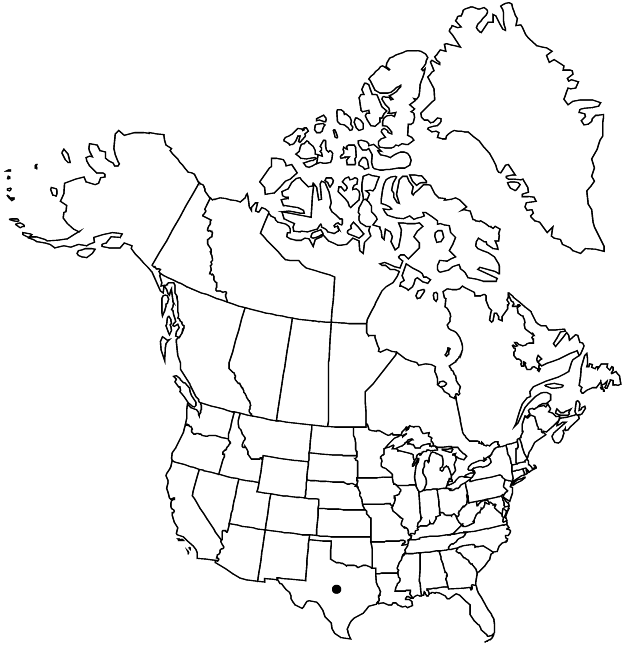Arenaria ludens
Sida 1: 51. 1962.
Plants annual. Taproots filiform. Stems 1–18+, erect to ascending, green or reddish, 15–30(–45) cm; internodes ± terete, 1–10 times as long as leaves, dull, retrorsely pubescent in 2 lines. Leaves usually connate basally, with narrow, scarious sheath 0.2–0.5 mm, petiolate (proximal leaves) or sessile; petiole 2–4 mm; blade 1-veined, vein prominent abaxially, usually narrowly lanceolate, elliptic, or oblanceolate, 10–17 × 2–4 mm, herbaceous, margins ± flat, herbaceous, dull, ciliate in proximal 1/2, apex acute to acuminate, not pustulate, glabrous; axillary leaf clusters absent. Inflorescences terminal, open, minutely bracteate, 3–45+-flowered cymes. Pedicels erect or ascending in fruit, 3–20 mm, retrorsely pubescent in 2 lines. Flowers: sepals green or often purple, 1-veined, strongly keeled proximally, ovate-lanceolate to narrowly lanceolate (herbaceous portion pale, narrowly lanceolate to linear), 3–4 mm, not enlarging in fruit, apex acuminate, not pustulate, glabrous; petals oblong to broadly elliptic, 2.8–4 mm, 1–11/3 times as long as sepals, apex rounded. Capsules loosely enclosed by calyx, ovoid, 3–3.5 mm, 4/5–1 times as long as sepals. Seeds 7–15, dark brown to black, suborbicular, slightly compressed, 0.6–0.7 mm, shiny, obscurely tuberculate (20×).
Phenology: Flowering late summer–early autumn.
Habitat: Igneous soil on cliffs and ledges
Elevation: 1000-2000 m
Distribution

Tex., n Mexico (Coahuila).
Discussion
Arenaria ludens may be more closely related to A. lanuginosa than to A. benthamii, the taxon with which it is often confused, if seed morphology is any indication.
Selected References
None.